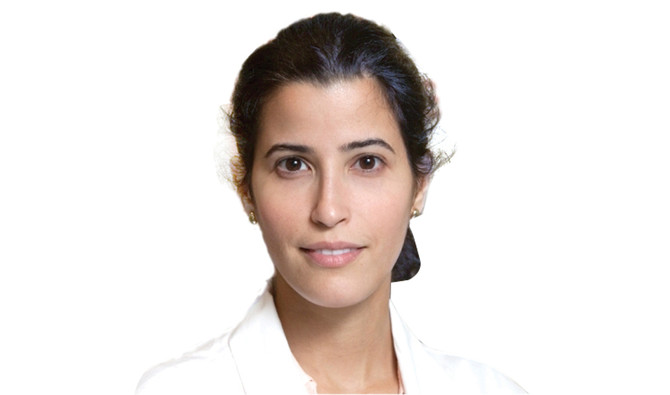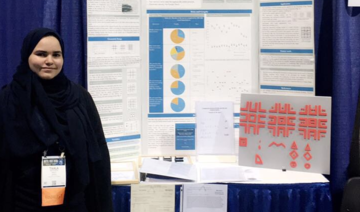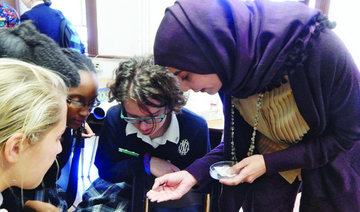JEDDAH: Adah Almutairi, who holds more than 10 patents in the field of nanomedicine, is a Saudi scholar and entrepreneur. She was born in November 1976, in Portland, Oregon, US. She is a professor of pharmaceutical chemistry and has been a faculty member at the University of California, San Diego since 2008.
She earned her bachelors degree in Chemistry from Occidental College in 2000. In 2005, she received her Ph.D. in Materials Chemistry from University of California, Riverside. The discipline focuses on electron delocalization and molecular structure.
She is credited with developing a novel polymer for electromechanical actuation. Between 2005 and 2008, she did her postdoctoral studies in chemistry and chemical engineering at the University of California, Berkeley. She is the director of UCSD’s Center of Excellence in Nanomedicine, which is a rapidly expanding interdisciplinary research collaborative team developing tools for the future of biology and medicine.
Almutairi is also the co-director of the Center for Excellence in Nano-Medicine and Engineering (CNME), where researchers create nanoparticles that aim at new levels of precision in treating disease, like delivering drugs under highly specific conditions — when triggered by light or when they encounter a disease-related situation.
Her primary appointment is in the Skaggs School of Pharmacy and Pharmaceutical Sciences. She is a member of the departments of Nanoengineering, and Radiology.
Almutairi is best known for discovering the first nanoparticle that responds to inflammation in the body. This life-changing innovation had led her to win the NIH New Innovator Award in 2009, which aims to encourage highly innovative research.
She has also won PhRMA Foundation Award, the Young Investigator Award, and was a Kavli Fellow for the US National Academy of Sciences in 2016.
She has been invited to speak and participate at universities and conferences around the world.















